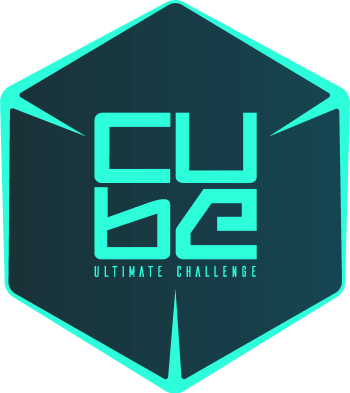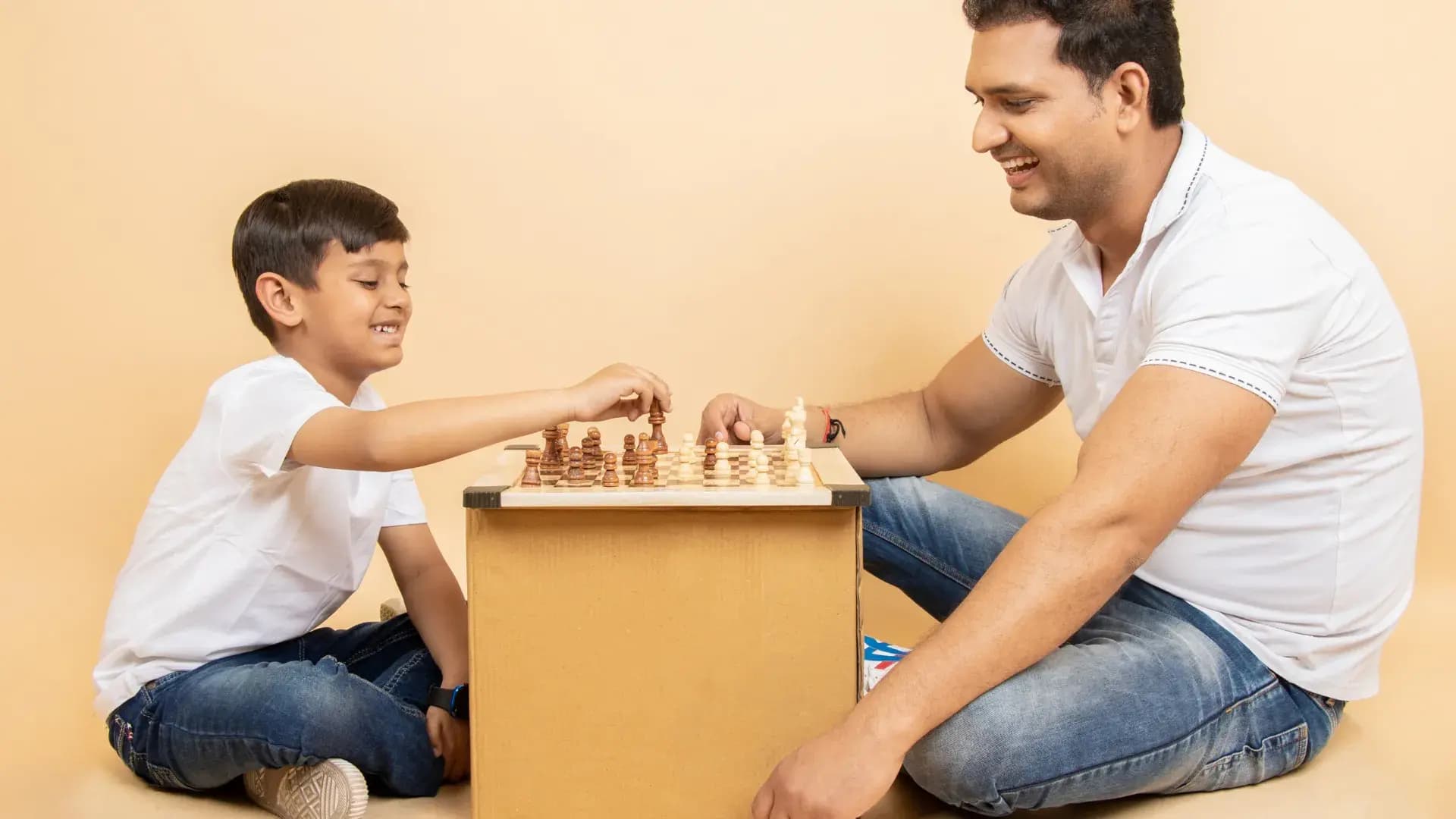What Are Brain Games?
Brain games encompass a wide variety of puzzles, riddles, and challenges specifically designed to engage different cognitive functions. From classic crosswords and Sudoku to modern digital apps and immersive escape rooms like Cube Challenges, these games target various mental abilities: memory, attention, problem-solving, logical reasoning, spatial awareness, and verbal fluency.
What sets brain games apart from other forms of entertainment is their purposeful design to stimulate neural pathways and encourage mental flexibility. While they're enjoyable, their primary purpose extends beyond simple amusement—they serve as exercises for your brain, much like physical workouts do for your body.
The Science Behind Brain Games
The concept of neuroplasticity—the brain's ability to reorganize itself by forming new neural connections—serves as the scientific foundation for brain games. Throughout our lives, our brains continuously adapt to new information and experiences, building and strengthening neural pathways with use while allowing lesser-used connections to weaken.
Research in cognitive science suggests that targeted mental exercises can enhance specific cognitive functions:
- Working Memory: Complex puzzles require holding multiple pieces of information in mind simultaneously.
- Processing Speed: Timed challenges encourage faster cognitive processing.
- Executive Function: Strategy games promote planning, foresight, and decision-making skills.
A 2020 study published in the Journal of Cognitive Enhancement found that participants who engaged in puzzle-solving activities for just 15 minutes daily showed measurable improvements in cognitive flexibility after 8 weeks.
Cognitive Benefits of Playing Brain Games
Regular engagement with brain games offers numerous cognitive benefits that extend into everyday life:
- Enhanced Problem-Solving Skills: Brain games train your mind to approach challenges from different angles, improving your ability to find innovative solutions.
- Improved Memory Function: Memory games strengthen both short-term and long-term recall abilities.
- Increased Attention Span: Focus-intensive puzzles help train sustained attention, potentially counteracting our increasingly distraction-filled environment.
- Better Multitasking Abilities: Games requiring management of multiple elements simultaneously can improve your capacity to juggle various tasks.
Furthermore, the confidence gained from overcoming mental challenges often translates to greater self-efficacy in tackling real-world problems. This positive feedback loop encourages continued cognitive growth and resilience.
Memory Enhancement Through Puzzles
Memory games do more than simply exercise recall—they strengthen the neural mechanisms underlying memory formation and retrieval. Different types of puzzles target different memory systems:
- Matching Games: Enhance visual-spatial memory by requiring players to remember the locations of specific items.
- Sequence Puzzles: Strengthen working memory by challenging players to remember and reproduce patterns.
- Word Games: Boost verbal memory by exercising vocabulary recall and language processing.
The process works through what neuroscientists call "memory consolidation"—the transformation of short-term memories into more stable long-term ones. When we repeatedly engage memory circuits through puzzles, we essentially tell our brain that this information is worth retaining, leading to stronger neural connections.
Consistent practice with memory-focused brain games has been linked to improvements in everyday memory tasks, from remembering names and faces to recalling where you placed your keys.
Enhancing Problem-Solving Abilities
Problem-solving is perhaps the most valuable skill developed through brain games. Whether it's deciphering a complex riddle, navigating an escape room, or solving a logic puzzle, these challenges train your brain to:
- Break Down Complex Problems: Analyze large challenges into manageable components.
- Recognize Patterns: Identify underlying structures and relationships.
- Apply Previous Knowledge: Transfer solutions from past experiences to new situations.
- Think Outside Conventional Boundaries: Consider unconventional approaches when standard methods fail.
The process of struggling with and eventually solving difficult puzzles reinforces neural pathways associated with analytical thinking. Over time, this mental flexibility becomes second nature, allowing for more creative and effective problem-solving in professional and personal contexts.
A fascinating aspect of puzzle-based learning is how it encourages productive failure—the process of learning from unsuccessful attempts. Each failed solution provides valuable information that guides subsequent attempts, teaching perseverance and resilient thinking.
Brain Games and Long-Term Brain Health
One of the most promising applications of brain games relates to cognitive maintenance throughout aging. While no puzzle can completely prevent cognitive decline, a substantial body of research suggests that regular mental exercise may help:
- Build Cognitive Reserve: Creating a buffer against age-related decline.
- Maintain Processing Speed: Keeping mental reflexes sharp.
- Preserve Executive Function: Supporting decision-making abilities later in life.
The concept of "use it or lose it" applies strongly to brain health. Just as physical exercise helps maintain muscle strength throughout aging, cognitive challenges help maintain mental sharpness. The Advanced Cognitive Training for Independent and Vital Elderly (ACTIVE) study, one of the largest clinical trials on cognitive training, found that participants who received specific cognitive training showed benefits persisting for up to 10 years.
It's worth noting that the greatest benefits appear to come from varied mental challenges rather than repetitive exercises. Embracing diverse types of puzzles—verbal, numerical, spatial, and logical—provides the most comprehensive mental workout.
Stress Reduction and Mental Wellbeing
Beyond cognitive benefits, brain games offer psychological advantages that contribute to overall wellbeing:
- Productive Distraction: Engaging puzzles redirect attention away from worries and rumination.
- Flow State: Complex but achievable challenges can induce a state of deep focus where time seems to disappear.
- Achievement Satisfaction: Completing difficult puzzles triggers reward systems in the brain, releasing dopamine and creating positive associations.
This combination of engagement and reward makes brain games an effective stress management tool. Unlike passive entertainment like watching television, puzzles provide an active mental escape that leaves you feeling accomplished rather than drained.
Many mental health professionals now recommend puzzle-solving as part of a holistic approach to managing anxiety and improving mood. The meditative quality of focused puzzle-solving bears similarities to mindfulness practices, grounding attention in the present moment and temporarily setting aside everyday concerns.
Digital vs. Physical Brain Games
In today's world, brain games exist across a spectrum from traditional physical formats to sophisticated digital applications. Each format offers distinct advantages:
Physical Brain Games:
- Provide tactile stimulation that engages additional sensory processing
- Often foster face-to-face social interaction
- Limit screen time and associated digital fatigue
- Include three-dimensional puzzles that better develop spatial reasoning
Digital Brain Games:
- Offer adaptive difficulty that precisely targets your skill level
- Provide immediate feedback and progress tracking
- Can incorporate multimodal learning (visual, auditory, interactive elements)
- Allow for convenient practice anywhere
Research suggests the most effective approach combines both formats, leveraging the unique benefits of each. While digital apps excel at personalized training and progress measurement, physical puzzles and in-person challenges like those at Cube Challenges offer irreplaceable spatial, tactile, and social dimensions.
Real-World Applications of Improved Cognitive Function
The cognitive skills developed through brain games translate into practical advantages across many aspects of life:
- Professional Performance: Enhanced problem-solving and attention to detail improve workplace productivity.
- Academic Achievement: Stronger memory and analytical skills support learning in educational contexts.
- Daily Efficiency: Better planning and multitasking abilities streamline everyday tasks.
- Creative Pursuits: Flexible thinking nurtures innovation and artistic expression.
Consider the experience of tackling an escape room challenge, which requires systematic thinking, communication, and creative problem-solving under time pressure. These same skills apply directly to managing complex projects at work, navigating interpersonal challenges, or finding innovative solutions to household problems.
The cognitive flexibility developed through varied puzzles becomes particularly valuable in today's rapidly changing world, where adaptation and learning agility are increasingly prized over static knowledge.
Getting Started with Brain Games
Ready to exercise your brain? Here are some recommendations for incorporating brain games into your routine:
- Start with Variety: Sample different types of puzzles to discover what engages you most—crosswords, logic problems, spatial puzzles, or memory games.
- Challenge Yourself Appropriately: Choose puzzles slightly beyond your comfort zone. Too easy, and you won't see growth; too difficult, and you might become discouraged.
- Establish a Routine: Set aside specific times for brain training, even if just 15 minutes daily.
- Track Progress: Note improvements in solving time or difficulty level to maintain motivation.
- Make It Social: Invite friends or family to join you for puzzle nights or escape room adventures.
Remember that cognitive benefits come from consistent practice over time rather than occasional intense sessions. The most successful brain training approaches integrate challenges into your lifestyle in sustainable ways that you genuinely enjoy.
Experience the Ultimate Brain Challenge at Cube
At Cube Challenges, we've created the perfect environment for exercising multiple cognitive skills simultaneously. Our immersive escape rooms combine logical reasoning, pattern recognition, spatial awareness, and collaborative problem-solving in an exciting real-world setting.
Unlike digital brain training, our physical puzzles engage all your senses while providing the social benefits of team-based challenges. Whether you're looking to sharpen your mind, build team cohesion, or simply enjoy a uniquely stimulating experience, our thoughtfully designed challenges offer the ideal cognitive workout.
Ready to put your brain to the ultimate test? Book your Cube Challenge experience today and discover how exhilarating mental exercise can be!




Social and Emotional Benefits
While often portrayed as solitary activities, many brain games—particularly in-person experiences like escape rooms—offer rich social benefits:
These social dimensions add another layer of cognitive and emotional development. Navigating team dynamics while solving problems exercises social intelligence alongside analytical thinking. The shared triumph of solving a difficult challenge together creates bonds and positive memories that extend beyond the game itself.
For families, collaborative puzzle-solving provides quality time that strengthens relationships while modeling lifelong learning and persistence for younger members.